Femia > Health Library > Getting Pregnant > Trying to conceive > 11 DPO: What to expect, and how to tell if you’re pregnant
11 DPO: What to expect, and how to tell if you’re pregnant
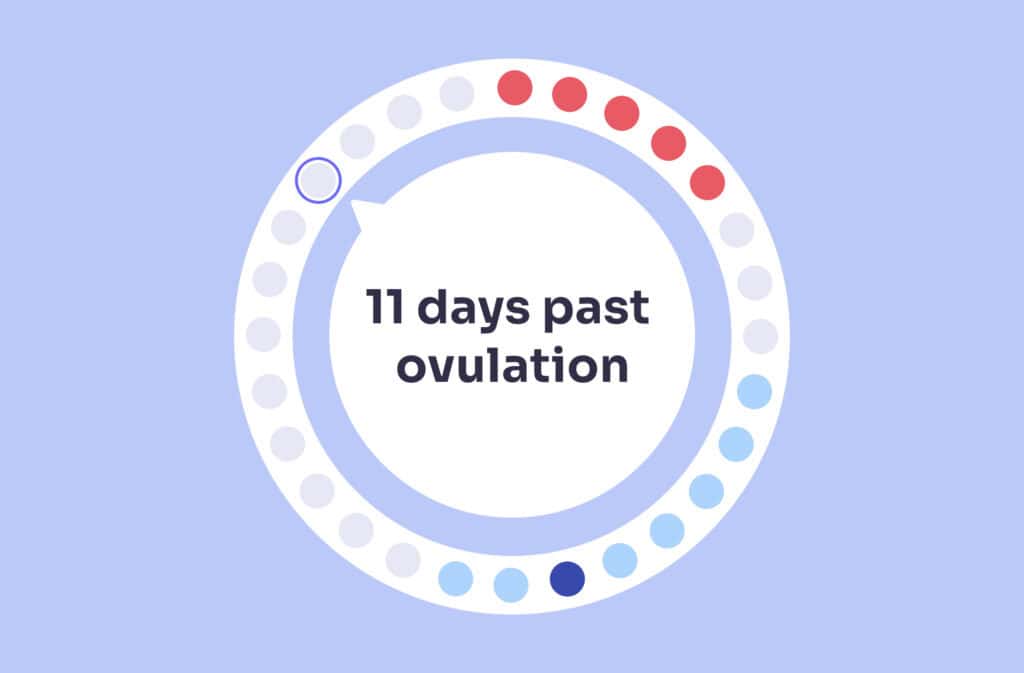
- Updated Feb 25, 2025
- Published
CRAFTED BY HUMAN
Crafted by human At Femia, we provide accurate and up-to-date information at every stage of your journey, from trying to conceive, pregnancy and postnatal support. All content is created by a real person based on in-depth research and own professional experience. Femia ensures that you will receive expert advice, strict accuracy and a personalized approach from our authors/medical experts. Learn more about our editorial policy.
FACT CHECKED
Fact checked At Femia Health, we maintain the highest standards of editorial excellence in delivering content focused on helping you conceive, guiding you through pregnancy, and supporting you postpartum. Explore our content review principles to learn how we ensure the accuracy and quality of our health and lifestyle tips for every stage of your journey.
At 11 DPO (11 days past ovulation):
- Implantation has likely occurred if conception took place.
- hCG levels are rising if pregnant, potentially becoming detectable.
- Early pregnancy symptoms may be more noticeable for some women. 11 DPO symptoms can still be similar to PMS, but differences may start to emerge.
- Many home pregnancy tests may be able to detect pregnancy.
Welcome to 11 DPO! You’re now at a point where early pregnancy signs might become more apparent. Let’s explore what’s happening in your body and what you might be experiencing at this exciting time.
➡️ Read other Femia guides in this series:
- 1 DPO: What to expect, and how to tell if you’re pregnant
- 2 DPO: What to expect, and how to tell if you’re pregnant
- 3 DPO: What to expect, and how to tell if you’re pregnant
- 4 DPO: What to expect, and how to tell if you’re pregnant
- 5 DPO: What to expect, and how to tell if you’re pregnant
- 6 DPO: What to expect, and how to tell if you’re pregnant
- 7 DPO: What to expect, and how to tell if you’re pregnant
- 8 DPO: What to expect, and how to tell if you’re pregnant
- 9 DPO: What to expect, and how to tell if you’re pregnant
- 10 DPO: What to expect, and how to tell if you’re pregnant
- 12 DPO: What to expect, and how to tell if you’re pregnant
- 13 DPO: What to expect, and how to tell if you’re pregnant
- 14 DPO: What to expect, and how to tell if you’re pregnant
- 15 DPO: What to expect, and how to tell if you’re pregnant
- 16 DPO: What to expect, and how to tell if you’re pregnant
What does 11 DPO mean?
11 DPO stands for “11 days past ovulation.” You’re nearing the end of your luteal phase, the second half of your menstrual cycle. At this stage, your body is either supporting early pregnancy or preparing for menstruation.
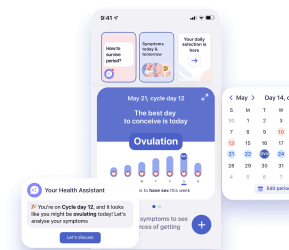
What's happening in your body at 11 DPO?
At 11 DPO, several key processes may be occurring:
1. Hormone production
If you’re pregnant, your body is now producing increasing amounts of human chorionic gonadotropin (hCG). This hormone supports the developing pregnancy and is what pregnancy tests detect.
2. Uterine changes
Your uterine lining remains thick and vascularized, ready to support a growing embryo if conception occurred.
3. Potential embryo development
If fertilization and implantation have taken place, the embryo is continuing to develop and grow.
11 DPO symptoms: What might you be experiencing?
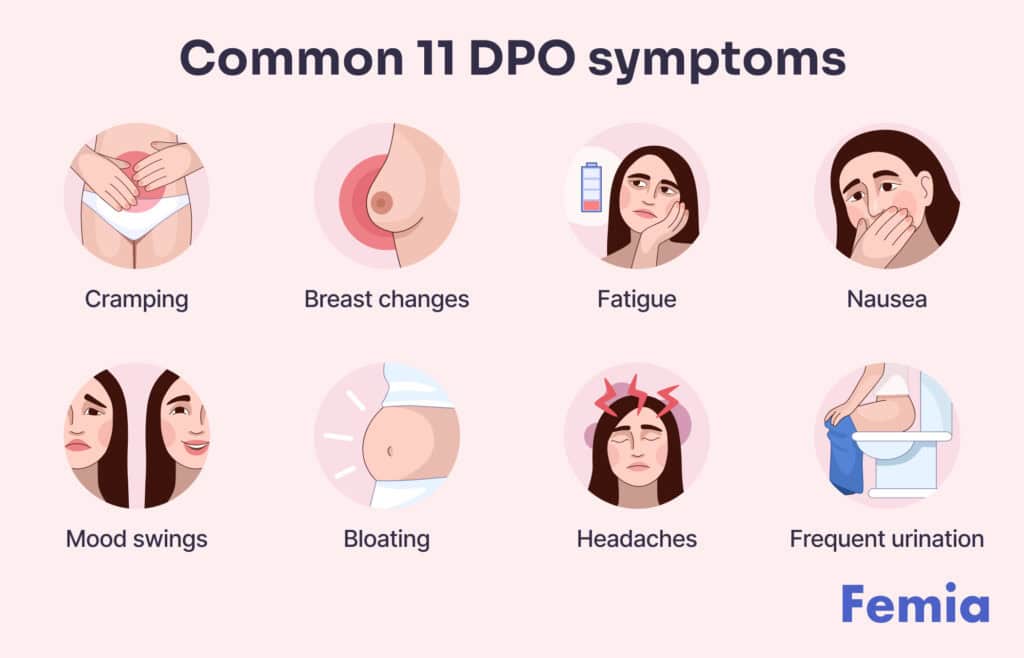
At 11 DPO, some women start to notice early pregnancy symptoms, while others may not feel any different. Here are some common 11 DPO symptoms:
- Cramping: Cramping 11 DPO can be due to early pregnancy or premenstrual changes.
- Breast changes: Tenderness, swelling, or tingling in the breasts or nipples.
- Fatigue: Feeling more tired than usual is common in early pregnancy.
- Nausea: Some women start experiencing mild nausea or food aversions.
- Mood swings: Hormonal changes can affect your emotions.
- Bloating: You might feel a bit puffy or bloated in your abdomen.
- Headaches: Mild headaches can occur due to hormonal shifts.
- Frequent urination: You might find yourself needing to use the bathroom more often.
11 DPO symptoms if pregnant
While every pregnancy is unique, some common 11 DPO symptoms if pregnant include:
- Mild lower abdominal cramping;
- Increased breast tenderness or sensitivity;
- Fatigue or tiredness;
- Frequent urination;
- Heightened sense of smell;
- Slight nausea or queasiness;
- Mood swings or emotional sensitivity;
- Food cravings or aversions.
Remember, experiencing these symptoms doesn’t guarantee pregnancy, and not having them doesn’t rule out pregnancy.
11 DPO discharge if pregnant
At 11 DPO, you might notice changes in your vaginal discharge if you’re pregnant. Here’s what to look out for:
- Increased volume: You may produce more discharge than usual.
- Consistency: The discharge might be creamy or milky in texture.
- Color: Typically, it’s clear or white.
- Odor: Healthy discharge should have little to no odor.
Discharge can vary greatly between women and even from one cycle to another. Changes in discharge alone are not a reliable indicator of pregnancy.
👉Find out more: Ultimate pre-pregnancy checklist: Essential steps to take before having a baby
11 DPO cervical mucus
Cervical mucus at 11 DPO can vary:
- If pregnant: You might notice an increase in creamy, white discharge.
- If not pregnant: Your cervical mucus might become thicker or decrease in quantity as you approach your period.
Remember, cervical mucus observations aren’t a definitive way to determine pregnancy.
Is 11 DPO too early to test?
While 11 DPO is still considered early, many home pregnancy tests can detect pregnancy at this stage. However, the accuracy of the test depends on several factors:
- Implantation timing: If implantation occurred later, hCG levels might not be high enough yet.
- Test sensitivity: More sensitive tests can detect lower levels of hCG.
- Time of day: First morning urine typically contains higher concentrations of hCG.
If you decide to test at 11 DPO, use a sensitive early-detection test and your first morning urine for the best chance of an accurate result.
👉Find out more: Evaporation line vs. faint positive: How to tell the difference on your pregnancy test
11 DPO BFN (Big Fat Negative)
Getting a negative test (BFN) at 11 DPO can be disappointing, but it doesn’t necessarily mean you’re not pregnant. Here’s why:
- Late implantation: If implantation occurred later, hCG levels might not be detectable yet.
- Low hCG production: Some women naturally produce hCG more slowly.
- Test sensitivity: The test might not be sensitive enough to detect very early pregnancy.
If you get a BFN at 11 DPO but still suspect you might be pregnant, wait a few days and test again.
11 DPO spotting
Spotting at 11 DPO can be confusing. It could be:
- Implantation bleeding: Light spotting that occurs when the embryo implants in the uterus.
- Early signs of menstruation: Your period might be starting a bit early.
- Normal cycle variation: Some women experience mid-cycle spotting.
If the spotting is light and doesn’t develop into full menstrual flow, it could be a sign of early pregnancy. However, if it becomes heavier or is accompanied by pain, consult your healthcare provider.
11 DPO symptoms leading to BFP (Big Fat Positive)
While every pregnancy is different, some women who get their BFP report experiencing these symptoms at 11 DPO:
- Unusual fatigue;
- Mild cramping or twinges in the lower abdomen;
- Breast tenderness or changes;
- Increased sense of smell;
- Slight nausea or queasiness;
- Mood swings or emotional sensitivity;
- Food cravings or aversions;
- Frequent urination.
Remember that many women have no symptoms at 11 DPO and still go on to have healthy pregnancies.
with confidence

Questions from the Femia community
I'm having cramping at 11 DPO. Does this mean my period is coming?
Not necessarily. Cramping at 11 DPO can be a sign of early pregnancy for some women, often called "implantation cramps." However, it can also be a normal premenstrual symptom. The only way to know for sure is to wait and take a pregnancy test.
My 11 DPO pregnancy test was negative, but I still feel pregnant. Should I test again?
Yes, it's a good idea to test again in a few days. At 11 DPO, some women may not have enough hCG for a test to detect, especially if implantation occurred later. If you still feel pregnant, wait 2-3 days and test again, preferably with your first morning urine.
Is it normal to have no symptoms at 11 DPO?
Absolutely! Many women don't experience any noticeable symptoms at 11 DPO, even if they're pregnant. The absence of symptoms doesn't rule out pregnancy, just as having symptoms doesn't guarantee it. Every woman's body responds differently to early pregnancy.
The bottom line
At 11 DPO, you’re at a point where early pregnancy detection becomes more likely, but it’s still not definitive for everyone. If you’re trying to conceive, remember that patience is key. A negative test at this stage doesn’t rule out pregnancy, and a positive test should be confirmed with a healthcare provider.
Whether hoping for pregnancy or not, pay attention to your body’s signals but try not to over-analyze every symptom. If you have concerns about your cycle or symptoms, don’t hesitate to consult with a healthcare professional for personalized advice.
➡️ Read other Femia guides in this series:
- 1 DPO: What to expect, and how to tell if you’re pregnant
- 2 DPO: What to expect, and how to tell if you’re pregnant
- 3 DPO: What to expect, and how to tell if you’re pregnant
- 4 DPO: What to expect, and how to tell if you’re pregnant
- 5 DPO: What to expect, and how to tell if you’re pregnant
- 6 DPO: What to expect, and how to tell if you’re pregnant
- 7 DPO: What to expect, and how to tell if you’re pregnant
- 8 DPO: What to expect, and how to tell if you’re pregnant
- 9 DPO: What to expect, and how to tell if you’re pregnant
- 10 DPO: What to expect, and how to tell if you’re pregnant
- 12 DPO: What to expect, and how to tell if you’re pregnant
- 13 DPO: What to expect, and how to tell if you’re pregnant
- 14 DPO: What to expect, and how to tell if you’re pregnant
- 15 DPO: What to expect, and how to tell if you’re pregnant
- 16 DPO: What to expect, and how to tell if you’re pregnant
References
- American College of Obstetricians and Gynecologists (ACOG). “Early Pregnancy Loss: Miscarriage and Molar Pregnancy.” ACOG Practice Bulletin, no. 200, 2018, pp. 1-10. The American College of Obstetricians and Gynecologists. https://www.acog.org/clinical/clinical-guidance/practice-bulletin/articles/2018/11/early-pregnancy-loss.
- “Luteal Phase, an overview.” ScienceSirect. https://www.sciencedirect.com/topics/medicine-and-dentistry/luteal-phase.
- Wilcox, Allen J., et al. “Time of Implantation of the Conceptus and Loss of Pregnancy.” New England Journal of Medicine, vol. 340, no. 23, 1999, pp. 1796-1799. National Library of Medicine.
- American College of Obstetricians and Gynecologists. “Fertility Awareness-Based Methods of Family Planning.” ACOG Practice Bulletin No. 205, 2019. https://www.acog.org/womens-health/faqs/fertility-awareness-based-methods-of-family-planning.
- National Institutes of Health. “What are some common signs of pregnancy?” National Institute of Child Health and Human Development, 2017. https://www.nichd.nih.gov/health/topics/pregnancy/conditioninfo/signs.
- Mayo Clinic Staff. “Home pregnancy tests: Can you trust the results?” Mayo Clinic, 2022. https://www.mayoclinic.org/healthy-lifestyle/getting-pregnant/in-depth/home-pregnancy-tests/art-20047940.
- U.S. Food and Drug Administration. “Pregnancy.” FDA, 2019. https://www.fda.gov/medical-devices/home-use-tests/pregnancy.
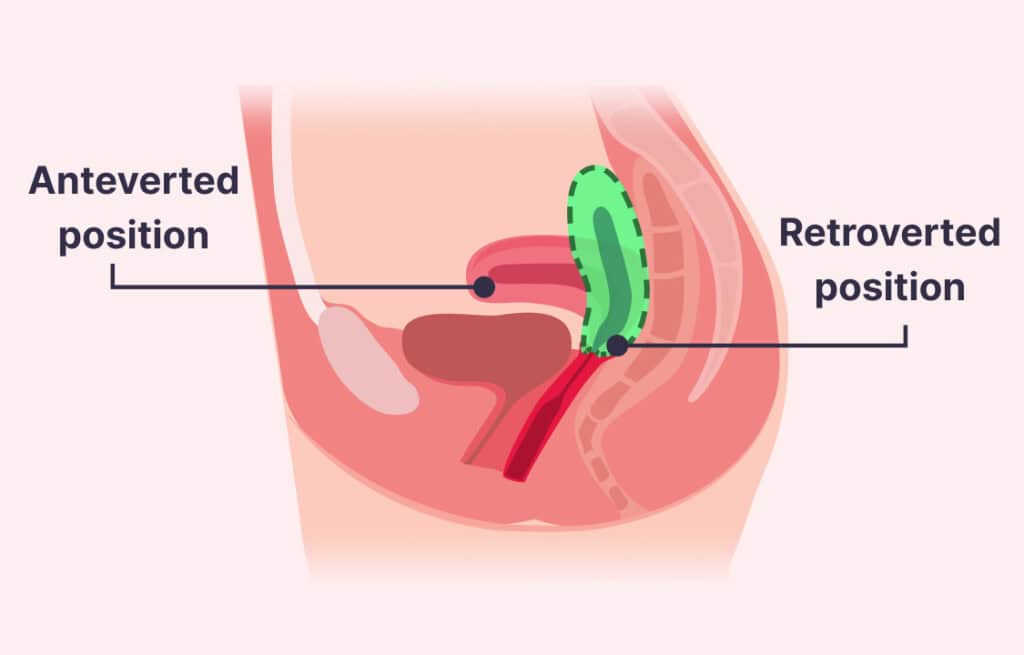
How to get pregnant fast with a retroverted uterus? Discover symptoms, impact on fertility, expert tips, and the best sex positions to improve your chances of conception.

Wondering what erogenous zones are, how to find them, and what type of stimulation to choose? Let’s dive into the topic and discuss both the obvious and the unexpectedly sensitive areas.
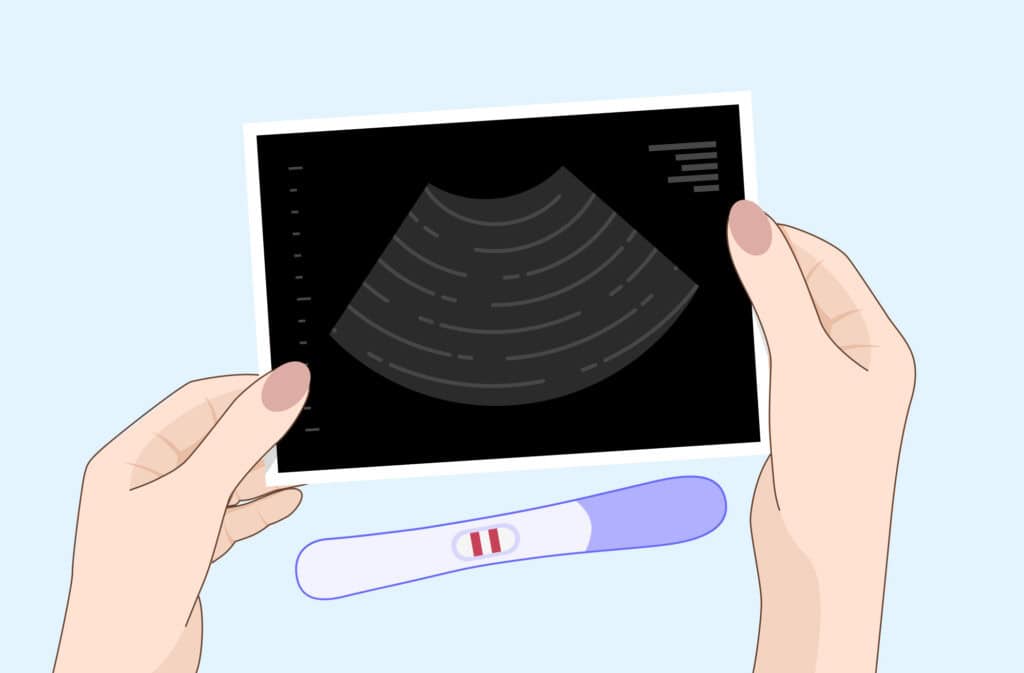
Discover why you might have a positive pregnancy test but no baby on ultrasound. Learn about 5 possible causes, including high hCG levels without pregnancy. Expert insights from Femia.

